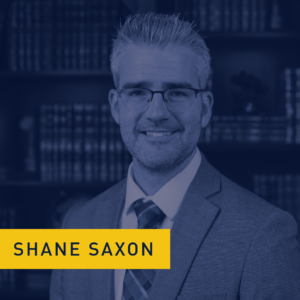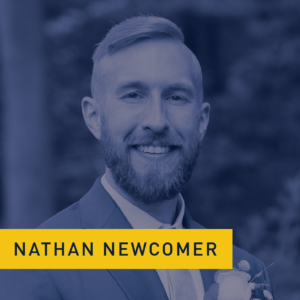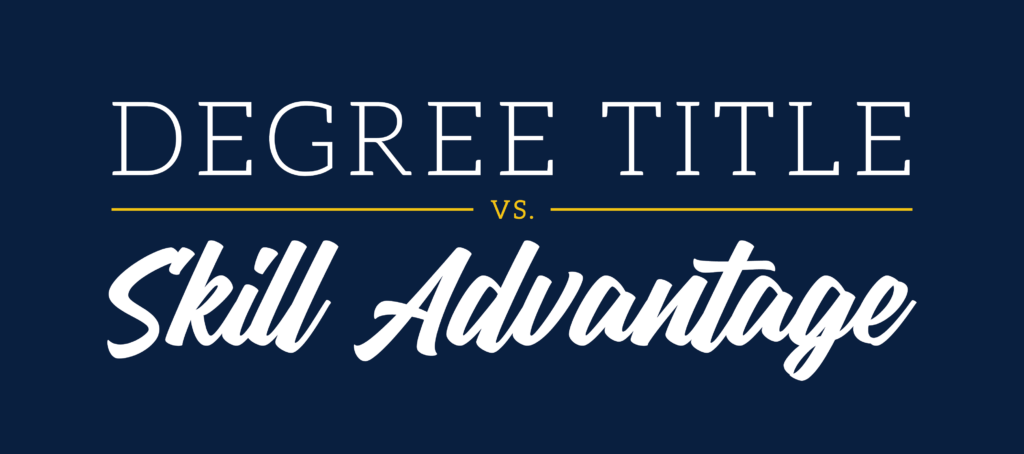Degree Title vs. Skill Advantage
The title of your degree does not dictate your career field.
Now before you irritatedly turn the page – because of course if you want to be a politician, you must have a degree in political science – calm down and keep reading because no, you don’t.
Don’t get me wrong; your degree is important. But higher education is more about honing skills and who you become than what you do in your career.
When he arrived at Maranatha, Shane Saxon (‘14, English) was a typical freshman student. He wasn’t sure what he wanted to study, but he jumped into college with both feet. “I started as a Bible major thinking that I might want to be a pastor. If I was going to be a pastor, I thought I would need classes in counseling, Biblical languages, and other skills required for the pastorate. Thankfully, I was required to take a British literature course with Mr. Huffstutler,” Saxon shared. That class changed the course of his life.

“In that class,” Saxon continued, “he made the point that we fail to make the most of our education if all we’re concerned with is the vocational skills it can provide. Instead, education can be so much more if it’s the process of learning what it means to be human and gaining an appreciation for how I can flourish in the world spiritually, intellectually, vocationally, etc.”
Saxon is currently working as the Director of Schools Division, Trademark Schools, and Wholesale Distribution at Memoria Press. He started working there as an editor – thanks to the editorial skills developed in Mrs. Stephens’ Advanced Writing course.
He wasn’t the only student to benefit from technical writing courses at Maranatha. Nathan Newcomer (‘14, Business Management) recently passed the Ohio Law Bar exam and is a practicing attorney. “Being an attorney requires a lot of writing, and while that skill was honed in law school, the professional writing skills that I learned at MBU provided the foundation,” Newcomer stated.

Sydney (Luttrell) Burckart (‘19, English) graduated from Missouri School of Law in May 2023 and took the Bar exam in July. “[The] time management and critical thinking skills I learned from my literature classes especially have helped me be an independent worker and quickly gain the trust of my superiors.”

United States Air Force SERE Specialist David Williams (‘18, Pastoral Studies) teaches various military personnel how to survive in a POW situation. This involves putting together presentations and teaching/public speaking among other things – skills he developed during his time at Maranatha. Williams’ career path did involve over a year of specialized training in learning to survive in any biome, evading capture, rescue, and parachuting, and then learning to teach those skills. “The time management and critical thinking I learned at MBU were vital in succeeding in my training. The process and skills learned in earning a degree are more important in my career than people knowing what my degree was for,” Williams said.

“To move from undergrad to law school, the name of my degree didn’t matter at all,” Burckart stated. “In my class, I have friends who majored in English, Business, Economics, Poly Sci, Dramatic Productions, Psychology, Physics, Education, literally almost anything you can think of.”
“In my field,” Saxon concurred, “the title of my degree matters very little. I happened to enter a career where the very view of education that I learned during my college experience is exactly the view of education that my job is designed to support!”
Newcomer agreed, “In my career, what is important is: Can you write well? Can you be a critical thinker? Can you communicate effectively? And all of those skills are developed irrespective of what undergraduate degree you pursue.”
Employers aren’t looking for just hard skills. Soft skills are crucial in today’s business world.
These alumni testified that soft skills such as critical thinking, time management, problem-solving, communication, and organization were instilled and developed within them during their years at Maranatha.
“No class could have prepared me for the variety of tasks that I have to perform, but the characteristics I was encouraged to develop have helped me with every one of them,” Saxon stated.
What about careers where the title of an undergraduate degree carries more weight? If you’re pursuing fields like nursing or accounting, the bachelor’s level is where you need to start.
So, think versatile. Instead of getting a degree in poly sci because you want to be a politician, get a degree in humanities. Remember, the title of your degree does not dictate your career field because your education is more about who you become than what you do as a career.
COURTNEY RANKIN (’19) serves as the Assistant Director of Communications, brining with her a diverse skills set that includes project management, graphic design, and desktop publishing. With a background in Humanities, Rankin forges connections with Maranatha community through storytelling.


